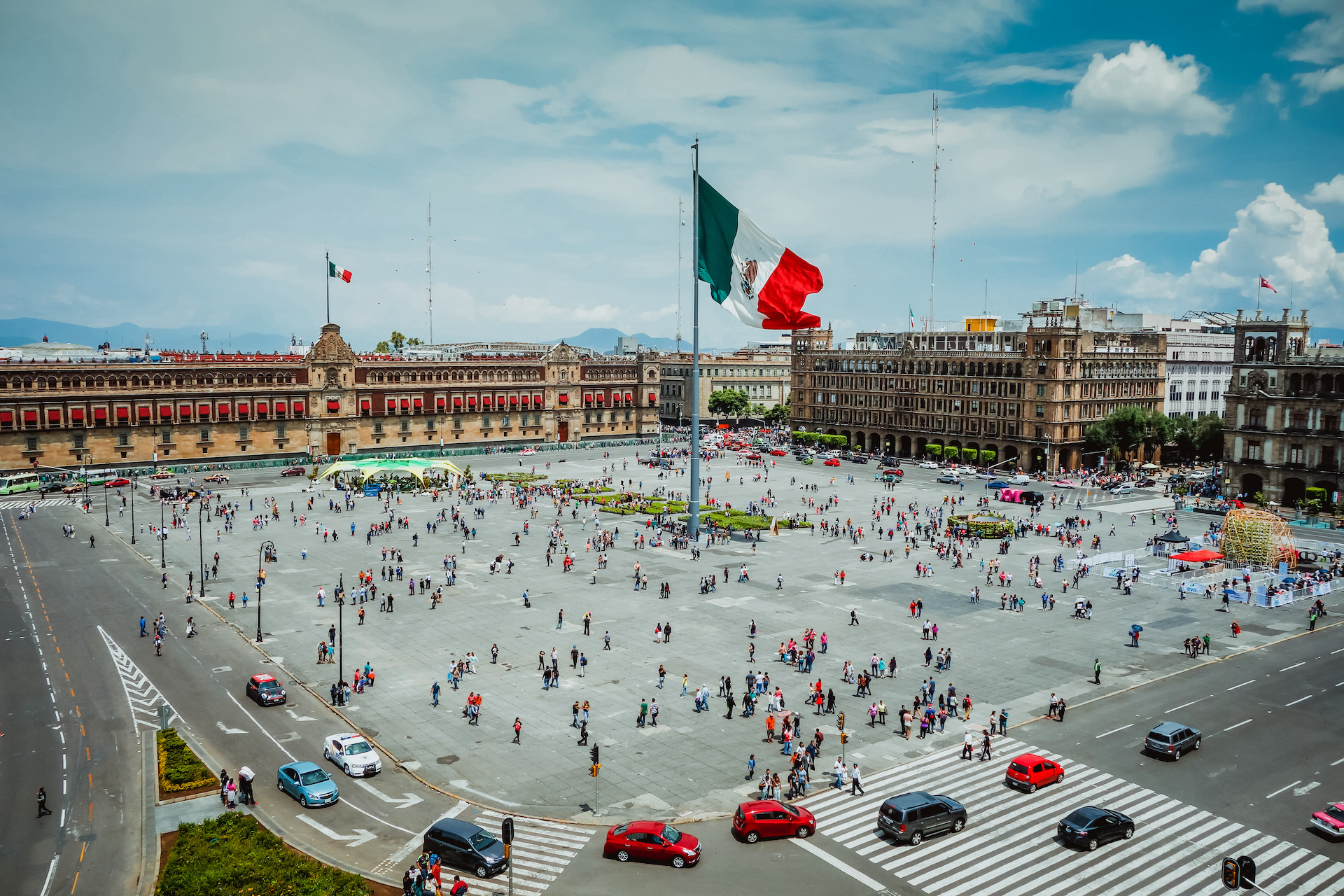🎧 LISTEN
(United States) — In just a matter of months, Mexicans will witness a pivotal moment in their political history when they head to the polls on Sunday, June 2, 2024, to participate in the presidential elections in Mexico.
These federal elections will determine not only who will lead the Executive Branch of the country but also elect the 500 members of the Chamber of Deputies and 128 members of the Senate of the Republic.
However, what will set these presidential elections in Mexico apart is not just the democratic process at stake but the fact that Mexico could elect its first female president.
The political stage is already taking shape after two female presidential candidates have been defined, while the eyes of Mexicans, including those living in the United States and other parts of the world, are fixed on this unprecedented electoral contest in Mexico.
As we delve into this momentous election, it is essential to understand the context and significance of what is at stake. Mexico’s political landscape has been undergoing a transformation over the past three decades, particularly since the election of Vicente Fox Quesada in 2000. The 2024 presidential elections in Mexico will represent a decisive moment in the nation’s democratic journey.
It is important to note that Article 83 of the Mexican Constitution prevents the current president, Andrés Manuel López Obrador, from seeking reelection, paving the way for a new era in the Executive Branch.
Political coalitions and presidential candidates
Two coalitions stand out in this electoral race, each with a distinctive vision for Mexico’s future. Together We Make History (Juntos Hacemos Historia) is the left-wing coalition composed of the National Regeneration Movement (MORENA), the Labor Party (PT), and the Ecological Green Party of Mexico (PVEM). Their nominee, Claudia Sheinbaum, who served as the Head of Government of Mexico City from 2018 to 2023, brings experience and a historic opportunity to become Mexico’s first female president.
On the other end of the political spectrum is the Broad Front for Mexico (Frente Amplio por México) a diverse coalition formed by the National Action Party (PAN), the Institutional Revolutionary Party (PRI), and the Party of the Democratic Revolution (PRD). Their candidate, Xóchitl Gálvez, a current senator is ready to challenge Sheinbaum in what promises to be a closely contested race.
Claudia Sheinbaum, born on June 24, 1962, is not only a seasoned politician but also a scientist and academic. Her public service journey includes roles as the Secretary of Environment and the head of the Tlalpan District. Sheinbaum made history as the first woman and the first Jewish person to hold the position of Head of Government of Mexico City. With a Ph.D., a master’s degree, and a bachelor’s degree, along with experience in sustainable development, her expertise is the driving force behind the emphasis on environmental issues in her campaign.
Born on February 22, 1963, Xóchitl Gálvez, of Mexican Indigenous roots, combines technical expertise in computer engineering with entrepreneurial ventures in smart construction technology. She served as the National Commissioner for Indigenous Peoples’ Development and later ran for governor of Hidalgo in 2010. Gálvez then led the Miguel Hidalgo District in Mexico City. Since 2018, she has been an independent and outspoken senator aligned with the National Action Party (PAN).
The 2024 Presidential Elections in Mexico and Mexican citizens in the United States
For the approximately 38 million Mexicans residing in the United States, this election holds immense significance. Many of them maintain strong ties to their homeland and their relatives still living in Mexico. Remittances sent to Mexico by Mexicans living in the United States play a significant role in the country’s economy, underscoring their connection to their homeland.
A report by the Associated Press on February 1, 2023, revealed that Mexican workers in the United States sent $58.5 billion in remittances to their relatives in Mexico, according to a report from the Bank of Mexico.
Another significant factor is the substantial number of Mexican citizens residing abroad who can vote in the presidential elections in Mexico, exercising their right from overseas to have their say in their country’s political affairs.
An analysis published on August 16, 2023, by the Pew Research Center using data from the U.S. Census Bureau’s American Community Survey revealed that approximately 37.2 million people of Mexican descent resided in the United States in 2021, encompassing both Mexican immigrants and those with Mexican ancestral roots.
Specifically, Mexicans constituted the largest portion of the Hispanic population in the United States, accounting for 60 percent of it in 2021. From 2000 to 2021, the population of people of Mexican origin in the United States increased by 79 percent, going from 20.9 million to 37.2 million.
During the same period, the number of Mexican-born residents in the United States also grew, though at a slightly lower rate of 23 percent, going from 8.7 million to 10.7 million. These statistics underscore the substantial presence and continued expansion of the Mexican heritage population within the United States.
A political and social topic that transcends borders
The prospect of Mexico electing its first female president adds an extra layer of excitement and anticipation to the elections. If achieved, this milestone would not only symbolize a step forward in gender equality but also signal a change in Mexico’s political landscape.
It would serve as inspiration not only for women in Mexico but also for the vast Mexican diaspora living abroad, demonstrating that breaking barriers and the glass ceiling, the invisible obstacle often preventing certain groups, frequently women or minorities, from advancing, is possible.
The presidential elections in Mexico are a political and social topic that transcends borders and captures the imagination of millions of Mexicans in the United States and the rest of the world, ultimately reaffirming the power of democracy to shape the course of nations.
© 2023 - 2024, Eduardo Barraza. All rights reserved.





